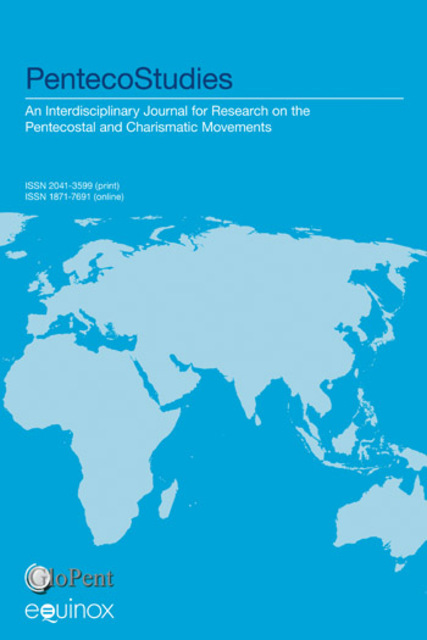From Monogenesis to Polygenesis in Pentecostal Origins A Survey of the Evidence from the Azusa Street, Hebden, and Mukti Missions

Full description
The idea that William Seymour’s Azusa Street Mission served as the isolated source of Pentecostal origination remains the dominant view among both Pentecostals and academics in the United States. In this article, I compare this well-known narrative of Pentecostal origins with the accounts of two lesser-known early missions that also contributed to the emergence of Pentecostalism: the Hebden Mission in Toronto, Canada and the Mukti Mission in Kedgaon, India. I argue that even a brief evaluation of these historical narratives (1) reveals that there was not anything particularly novel about the religious experiences described by the early participants of the Azusa Street Mission, and, therefore, (2) best supports a polygenetical rather than a monogenetical theory of Pentecostal origins. I conclude by offering some nascent suggestions for why a monogenetical theory of Pentecostal origination was so attractive to both early Pentecostal adherents and historians alike, despite the availability of evidence to the contrary.
- typeImage
- created on
- file formatjpeg
- file size63 KB
- container titlePentecoStudies
- creatorAdam Stewart
- issnISSN 1871-7691 (online)
- issue13.2
- publisherEquinox Publishing Ltd.
- publisher placeSheffield, United Kingdom
- doi
We use cookies to analyze our traffic. Please decide if you are willing to accept cookies from our website. You can change this setting anytime in Privacy Settings.
